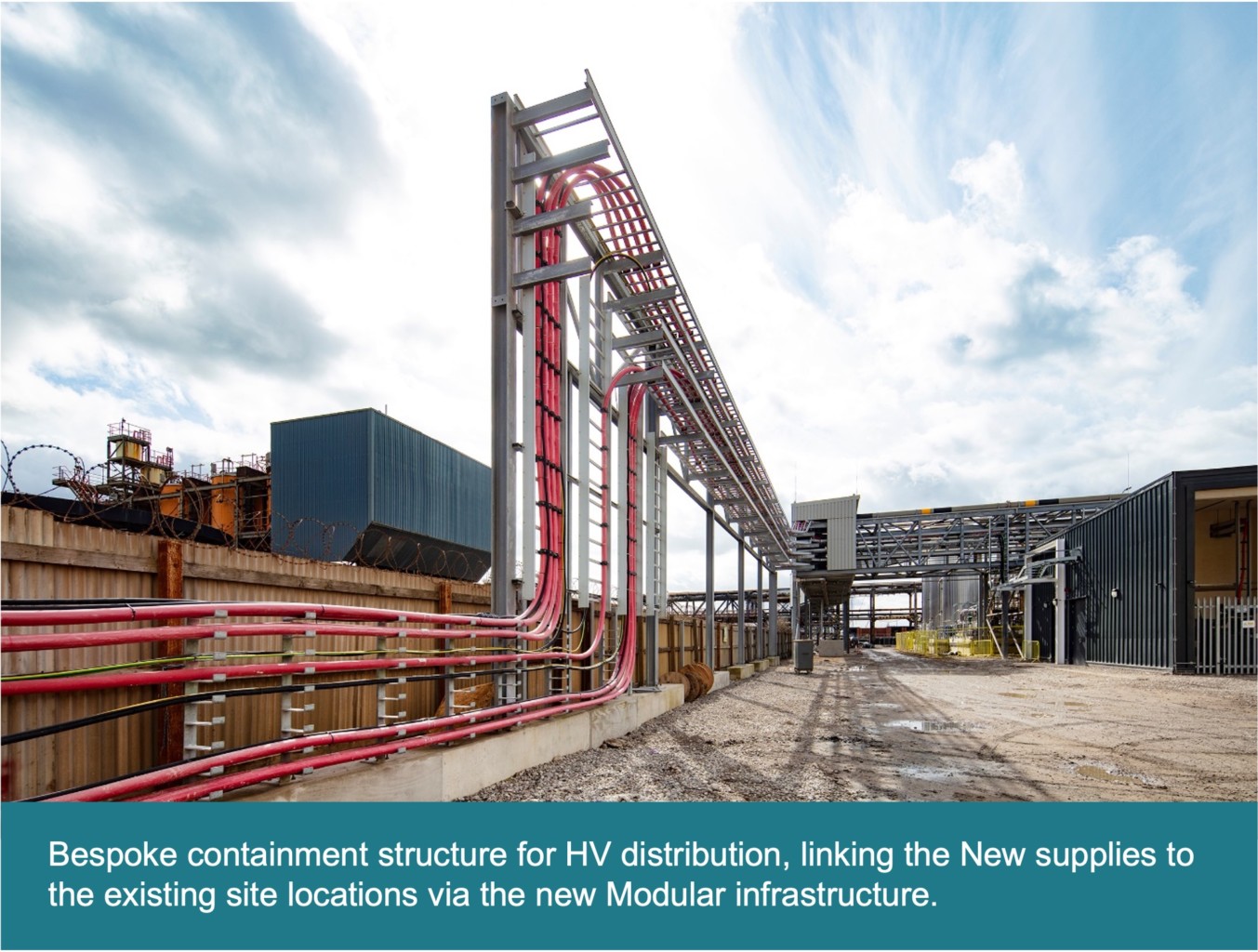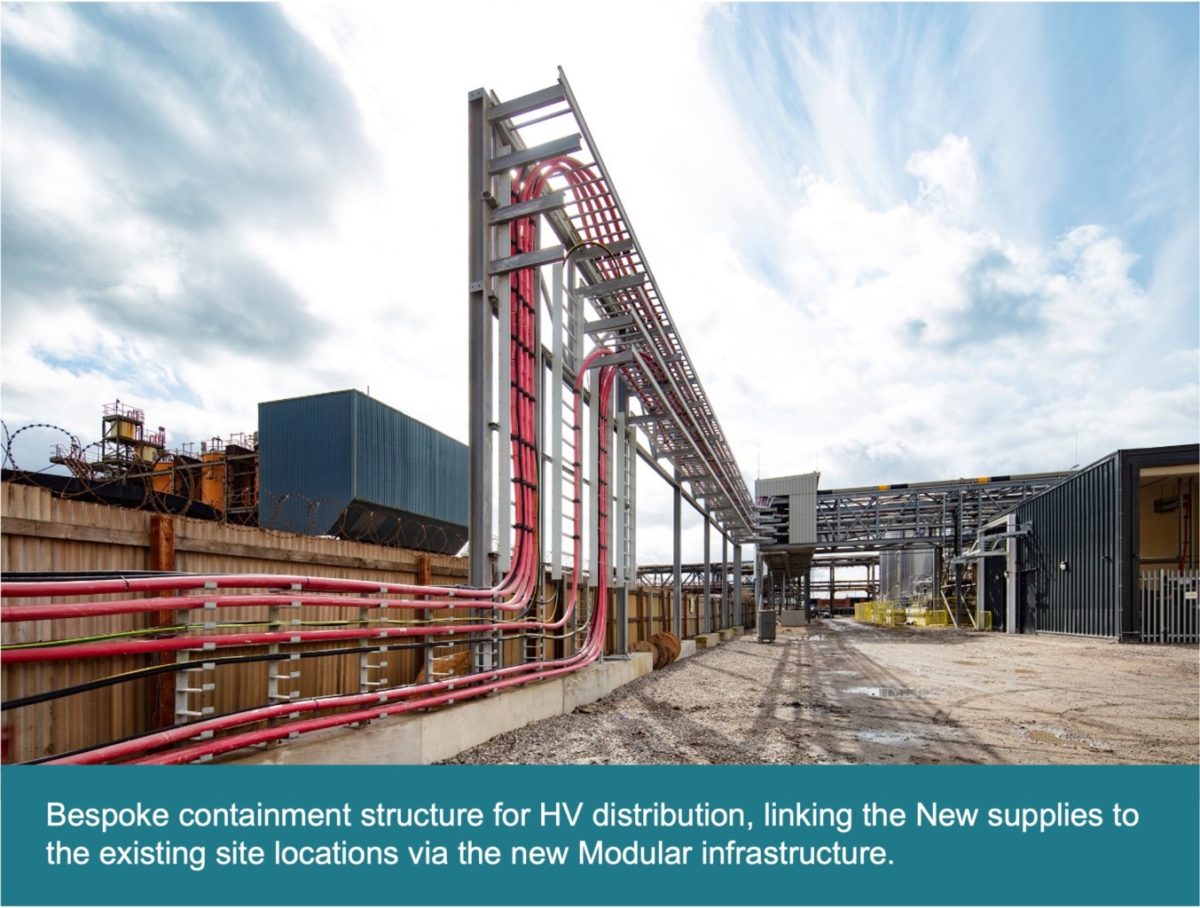Investment in renewable energy as a low carbon energy source is imperative to our sustainable future. For this reason, TATA Chemicals Europe (TATA) and LostockSustainable Energy Plant (LSEP) embarked on an all-encompassing infrastructure upgrade costing £480 million.
As a “foundation” industry TATA supports industrial clusters and supplies many of the UK’s major industries. The infrastructure upgrade would not only support its existing process plant but would also facilitate the integration of a new Energy from Waste (EfW) plant that would provide renewable energy via a low carbon source to over 125,000 homes within the GreaterManchester area. Once operational, LSEP would recover energy safely and cleanly, diverting 600,000 tonnes of residual waste from landfill, while constantly producing renewable energy and helping to reduce the effects of climate change.
Three Winning Facts:
- The fabrication of the bespoke ‘super modules’ SES developed was ground-breaking and demonstrated a best-in-class approach to the use of off-site technology. Due to the size and scale of the required modules – each was 14m long by 5m wide – SES had to develop a comprehensive logistical masterplan working with Greater Manchester Police and Merseyside Police to transport them to site. They are the largest we have manufactured and installed to date.
- The project was not only defect-free at delivery (not handover) despite the highly corrosive and hazardous 24/7 working environment, but it was also of such high quality that maintenance was contracted to no earlier than 15 years from handover, ensuring massive savings for the client.
By using VR technology to fully visualise the key areas whilst working in the collaborative data environment, the most obvious advantage of using VR was the opportunity to view the finished product before it had been built and inspect the model in precise detail at an early stage, grasping its complexities much more comprehensively and thus, avoiding unnecessary pitfalls or redesign. - This is without doubt the lowest carbon footprint project SES has ever delivered with 95% of the project being constructed off site, saving an amazing 18,919 hours over traditional construction methods. Off-site working led to CO2 reduction targets being met due to fewer deliveries, fewer personnel on site and less packaging. Time was saved on install because off-site allowed the modules to be built at the same time as groundworks were ongoing, utilising time more effectively. An Offsite Hub was established ten miles away and local labour was used whenever possible to minimise travel and fuel consumption, so the reduced impact on the environment was staggering given the amount of labour hours, plant and materials that were taken off-site as part of this build.


